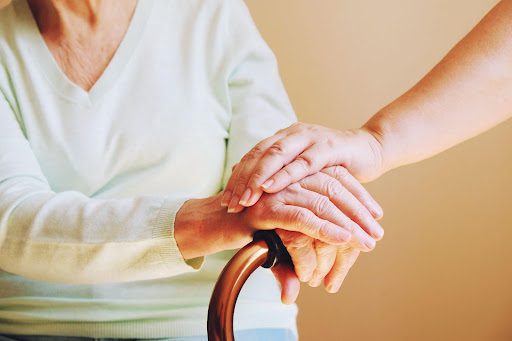In the United States, one in four women and one in five men are informal, unpaid caregivers to a loved one with chronic health issues. They provide vital assistance with self-care tasks, transportation, household chores, and help with medications or other treatments. This dedicated care is valuable for families trying to save on medical costs and keep their loved ones in their homes. But the energy and time required to manage these tasks can take a significant toll on some caregivers. The demands can strain their mental health, and caregiver burnout can develop over time. The risk for caregiver depression is elevated as well.
Read on to learn about common caregiver mental health and physical health issues.
Then review the signs of caregiver stress, how caregivers can recognize their needs, and tips for self-care and stress management.

Informal family caregivers play an essential role in treating chronic and debilitating health conditions. In a way, a patient and their informal caregivers are like a vehicle with multiple moving parts; if one of the moving parts fails, the vehicle may stop moving forward. Caregiving efforts entail countless hours of additional physical, mental, and emotional tasks by individuals who are also likely working and involved in their own relationships and life activities.
Several issues contribute to stress and an increased risk of mental and physical health problems.
Depression is a mental disorder resulting in a persistently low mood, loss of interest in favorite activities, sleep problems, disrupted appetite, fatigue, and sometimes thoughts of death or self-harm. Individuals with depression may have difficulty doing normal daily tasks, working, or engaging in relationships.
Caregivers are at a significant risk of developing depressive symptoms, which may lead to episodes of major depression. Despite the likelihood of this negative outcome, research studies have not consistently examined depression from being a caregiver. Nevertheless, some studies show that 30-80% of dementia caregivers and nearly 54% of stroke caregivers may experience some depressive symptoms. Overall, 8.9% of caregivers in any situation may have sufficient symptoms to be diagnosed with a major depressive episode. Caregivers who live with the individual they care for, such as spouses, may also report more depressive symptoms than those who live separately.
Anxiety is a feeling of fear and uneasiness, even when a concrete threat is not present, resulting in an elevated heart rate, sweating, and a sense of restlessness. This is a normal emotional response to uncertainty and stressful situations but can become disordered when symptoms are distressing enough to interfere with daily life. Individuals with anxiety disorders develop persistent, distressing worries about everyday situations, often without a defined stressor.
According to one study, 26% of caregivers may experience anxiety symptoms, and those caring for individuals with significant mental health and behavioral needs are at an even higher risk. Some caregiver anxiety is normal when supporting a loved one with multiple health needs, especially when a diagnosis is new or the caregiver is inexperienced. But caregiver anxiety that becomes significant and overwhelming can interfere with daily living activities, negatively impacting their ability to perform caregiving duties. Another scenario associated with high caregiver anxiety is hospice care, a type of care focused on enhancing the quality of life for individuals with advanced or terminal medical conditions.
Stress and anxiety are sometimes used interchangeably, but they are distinct conditions. Stress is the response to an external trigger, such as a financial deadline, work projects, or relationship problems. Muscle tension, irritability, and digestive problems can occur when the stressor is pressuring an individual. In contrast, the excessive worrying that occurs with anxiety persists even in the absence of a specific stressor.
The impact of caring for a significantly ill individual is taxing regardless of the circumstances, but some conditions can be more challenging. Dementia care is particularly stressful for spouses as they watch their loved one’s functional decline, enduring a type of living bereavement. And caregivers of individuals with severe mental health disorders bear the burden of stigma, putting them at risk for isolation and discrimination. Spouses generally carry a heavier load than other caregivers, regardless of the condition. They live with the individual in need and often feel like they have no choice in being the primary caregiver. This sense of obligation can contribute to poorer overall physical and mental health than non-spouse caregivers.

While many caregivers willingly give their time to ensure their loved one gets the care they need, the toll on family caregivers can be considerable. Caregivers may also be more vulnerable to illness or physical strain because of their caregiving activities. Some caregivers endure unaddressed symptoms of depression and anxiety, pushing through so their loved one’s care can continue at the expense of their wellbeing.
Some medical clinics and healthcare professionals prioritize caregiver engagement, but this is not always the case. Caregivers may not take time to address their needs, or they may believe their problems are less important. Unfortunately, pushing their needs off may lead to persistent and worsened problems, compromising their vital role as a caregiver in the home.
Recognizing the signs of stress and emotional strain can help caregivers address their needs as they emerge and are more manageable. These are among the most common signs that caregivers are enduring more stress with which they can cope.
Common signs of caregiver stress include:
Since a patient’s outcome often depends on having a reliably healthy caregiver involved, early anxiety and depression screening for caregivers would be highly beneficial. Caregivers could get the support they need before their symptoms overwhelm them and interfere with their care activities. Unfortunately, this is not yet common practice. A more inclusive viewpoint that sees the caregiver as an additional patient would make this more feasible.
Research shows that additional measures can also support caregiver wellbeing and reduce the impact of anxiety, depression, and stress. These interventions include:
It can be challenging for caregivers to think of their needs while caring for a loved one with significant health needs. These self-care tips can help caregivers maintain good self-care habits and lower their risk of developing depression or anxiety symptoms.
Self-Care Tips for Caregivers
Family caregivers help individuals with disabling health conditions remain in their homes and maintain long-term treatment regimens. Caregivers face a higher risk of depression, anxiety, and stress, often putting their personal needs on the back burner. And with an aging population, this scenario is becoming more common. With improved awareness of caregiver mental health issues and how to handle them, individuals can maintain better overall health and continue to provide much-needed support for their loved ones.